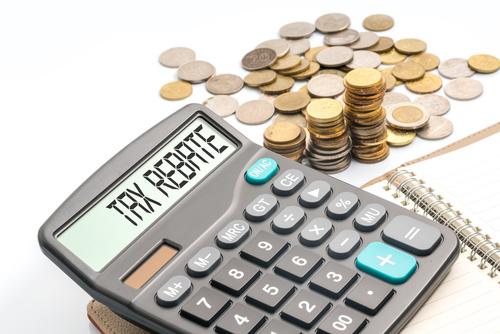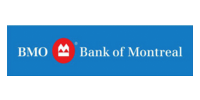Is real estate property investment a sound investment for a landlord in Ontario?
Unlike your principal residence, an investment property is more complex, and with countless considerations. Do you want a
multi-unit residential building? Do you prefer a commercial unit? Or, are you more interested in having an investment residence where you can be an occupant?
For some, real estate presents a better investment future than the stock market. To begin with, it can realistically generate immediate and ongoing income. Real estate also grows in value over the years, with proven long-term rewards. If you’re so inclined, property investment may be for you.
Securing a substantial down payment to start things off
The
initial down payment on any property investment is key to the overall deal. Is your initial down payment enough to ensure manageable monthly mortgage payments? Should you wait and secure more cash? Usually, an investment property requires a substantial deposit commitment.
You should also be prepared for more rigorous mortgage approval requirements. Unlike a home purchase, an investment property is riskier for the financial folks - rigorous requirements allow them to mitigate the risk.
Shopping and negotiating for manageable interest rates
Generally speaking, interest rates on an investment property will be somewhat higher than the traditional mortgage interest rates available for residential properties. Beyond negotiating for a good interest rate, it’s also very important to secure manageable, realistic, monthly payments.
Calculating “margins” prior to actually buying the property
Do your homework BEFORE buying. Industry stats recommend a “return” goal of 10%. As for expenses, you should consider maintenance costs, building insurance, property taxes, and even pest control, landscaping, and snow removal. There should be a contingency fund for a crisis.
Staying away from fixer-uppers and/or property “flipping”
Yes – it may be tempting to take on a “fixer-upper” or to try to orchestrate a “
buy-and-flip”. But if this is your first real estate investment, it’s better to stay away. For the experienced, these types of transactions are doable – the risk is considered manageable, as well as the capacity to finance.
Calculating operating expenses vis-à-vis monthly budgets
Obviously, an accurate, realistic spreadsheet of income and expenses is an absolute requisite for budget management and future forecasting. Whether this investment is designed to be a source of income, or a break-even proposition, the numbers have to make sense in good times and bad.
Finding the right location and satisfying occupant needs
There’s much to be said for using a real estate agent to find a property – but it’s also important to provide the agent with sound pre-requisites and parameters. In real estate, the mantra is always LOCATION-LOCATION-LOCATION (from schools, to amenities, to transportation, to shopping).
Maintaining the bottom line with realistic expectations
A real estate investment is serious stuff – it’s real money, with major responsibility, and with risk. It’s therefore critical to keep your expectations realistic. A rental property, for instance, has the potential for creating a great reward and the risk of backfiring.
Being a commercial landlord or a residential landlord in Ontario
For the most part, first-time property investors find more certainty purchasing a condominium or a single-family dwelling. And while multi-unit properties might generate more monthly cash flow, bigger isn’t always better. Here again, it’s important to do an income/expense analysis.
Residential Properties
In Ontario, real estate law for residential properties is quite strict for investors. Often, it appears as if a landlord is less protected than a problematic tenant. As well, disputes between landlords in Ontario and tenants take many months to resolve, and the process can be stressful, and without reward.
Commercial Properties
With a commercial property, leases can be complex and somewhat intimidating with all of the paperwork. But unlike a residential rental agreement, a lease is subject to contract law. It means that the lease agreement (between the landlord and tenant) is legal, binding, and enforceable.
As it is, a commercial lease will stipulate virtually every aspect of the landlord/tenant agreement. It’s binding between the parties, and therefore legal advice and counsel is a must. The best thing about a commercial lease is the complete protection of the landlord (a very valuable aspect).
Over the years, leases are renegotiated between the parties, depending on the term of the lease and any renewal terms (agreed upon in the “head” lease). Rent increases, for example, are built into the original lease, allowing the tenant to forecast future expenses based on market prices.
Financing a residential property
All depending on the lending institution, the required down payment on a residential investment property could be as high as 20%. Today, with the hot real estate markets nationwide, mortgage rules and regulations have tightened. For instance, Canada Mortgage and Housing Corporation (CMHC) now insists that only 50% of total property rental income be measured as actual income.
Financing a commercial property
Commercial properties will generally have a higher “entry” requirement than residential. Here again, depending on the lending institution, and personal credit profile, required down payments may be in the 35-40% range. When financing a commercial property, an impeccable credit profile is required, and oftentimes a personal guarantee to the lender. As for mortgage rates, they may well be higher, but good negotiating skills will ensure the best rates. Investment opportunities in the commercial sector are vast – from industrial spaces, to retail condominiums, to apartments.
Vacancy risk with residential properties
Today, one of the great benefits of a residential investment property is the large pool of potential applicants. In most urban centers, vacancy rates are quite low, and while prices are generally high, the applicant market has adapted to the reality. Residential properties do not stay empty for long.
Vacancy risk with commercial properties
Commercial properties are more nuanced than residential, and as such, leasing out a property can be more of a challenge. What kind of business tenant are you looking for? Does the business tenant match with the location? How’s the physical presentation of the unit or building for lease?
Yes – vacancy risk with a commercial property is higher than residential. But with a solid plan, a proactive approach, and some professional support (real estate agent or property manager) the results can be realized. Once leased, a good tenant, with a good business, will be there long term.
Landlord and tenant relations
Like any business relationship, both landlords and tenants have responsibilities, with some being legally binding. Both the tenant and the landlord must abide by Ontario laws. For landlords, the property must be functional and habitable. For tenants, building rules and local bylaws must be accommodated. As landlord, you may have to deal with an empty space, and even evict tenants.
Understanding the Residential Tenancies Act
The Ontario Residential Tenancies Act (RTA) governs the relationship between a landlord and a tenant. The RTA essentially outlines the tenant’s rights and the landlord’s rights. Amongst a host of issues, the legislation outlines in detail such things as maintenance, repairs, and evictions.
Where necessary, the Landlord and Tenant Board settles landlord and tenant disputes. Tenants apply to the Board when a landlord in Ontario is not meeting obligations, or is compromising tenant rights. Landlords apply to the Board when tenants are in rent arrears, or when undue damage is caused.
Security deposits and other tenant charges
Landlords are well in their rights to ask for a security deposit before a move in date. Often called “last month’s rent”, this is a deposit that is kept by the landlord for the duration of the rental period. In many instances, this amount is actually used to pay the last month rent when due.
- landlords may also request a deposit for keys or an access card (deposit must be returned).
- landlords may charge a penalty fee for rent cheques that come in as NSF (not sufficient funds).
- landlords may not ask for other deposits, added charges, or advance payments of any kind.
- tenants are not required to provide post-dated cheques (or auto payments) but may decide to.
- it’s always safe for a tenant and landlord to exchange “paid” receipts for money exchanged.
Issues related to deposits or other charges may be presented to the Landlord and Tenant Board.
Tenant and landlord privacy boundaries
Based on the law, tenants have a right to privacy and so-called “quiet enjoyment” of the premises. When a landlord requires entry to the premises, due notice must be given (sometimes in written form). Rules and guidelines for this notice are usually contained in the rental agreement, and as such, there are no surprises for either party. Much of the time, common courtesy simply applies.
Heating and air conditioning requirements
With winter heating, city bylaws require landlords to provide minimum indoor temperatures and specific dates of activation throughout the calendar year. Where a building or premises has built in air conditioning, similar guidelines and calendar dates apply. In the event that heating or air conditioning is out of order, a landlord is required to fix or replace the unit. However, there is requirement for a landlord to install air conditioning. Much of this does not fall under any bylaw.
Landlord options for terminating a tenancy
In Ontario, there are well-defined guidelines for terminating a residential tenancy. For example, there are termination guidelines when a landlord requires the premises for personal use, or for use of an immediate family member like a parent, spouse, or child (or spouse’s parent or child).
In general, a landlord needs to give a tenant at least 60 days notice (written form) prior to the end of the rental term. Some landlords prefer to be official by using specific forms provided by the Landlord and Tenant Board. Tenants can also give notice during the term of their tenancy.
Practicable reasons for evicting a tenant
- tenants who owe substantial back rent can be evicted
- tenants who consistently pay rent late can be evicted
- tenants (or guests) doing illegal activity can be evicted
- tenants (or guests) causing damage can also be evicted
Raising tenant rental amounts in Ontario
A number of questions arise for landlords, with respect to raising residential tenant rent. For example, can an agreed-upon rent amount be raised at any time? Or - how much of an increase can be charged when a new tenant moves in? Or - what is the legal limitation for raising rent?
Rent increase guidelines vary with jurisdiction and are revised and updated on a regular basis. The fact remains, however, that rent increases are provincially regulated (usually around 2%).
Rental rates can usually be increased one year after moving in, or one year after the last increase.
Landlords doing credit checks on tenants
The Ontario Landlords Association has endorsed tenant credit checks across the province. The association has also promoted the importance of this type of tenant screening in order to better protect landlords. Without compromising privacy issues, tenant credit checks are permitted.
Landlord taxes and deductions in Ontario
While an investment property can be lucrative, investment income still falls under the provisions of CRA (Canada Revenue Agency). Rental income applies to every type of residential investment – a detached home; a duplex or triplex; an apartment or condo; even a rented out basement suite.
Canada Revenue Agency requires a property owner (or owners) to declare all rental income. In the case of co-owners, each owner must account for a share of rental income. As usual with any CRA related interaction, the right forms and the appropriate paperwork must be submitted.
Certainly, expenses beside rental income is also allowed. Some expenses are short term – like maintenance, repairs, or painting. Other expenses are “capital” expenses – usually longer-term improvements to the property like HVAC replacement, driveway paving, or installing windows.
Investment losses can also provide significant deductions. When property expenses exceed rental income, this is a loss. The loss can be deducted from rental income (or other income). Unpaid rent is also a loss. Needless to say, the CRA requires proof that rent was unable to be collected at the time.
Rebates for residential rental properties
If you’re investing in a residential rental property in Ontario, you may well
qualify for the New Residential Rental Property Rebate.It’s applicable when purchasing a newly built home or condo and when a formal rental agreement (lease) has been signed for a minimum period of a year.
If your new residential property will be rented out, the original builder (or developer) will not be able to apply for the New Residential Rental Property Rebate. Since you are the purchaser of the investment property, your will pay HST on the property and apply for the rental property rebate.
The
NRRP rebate is essentially a tax refund from CRA, and it can be substantial. For a number of reasons, it’s recommended that an application be filed immediately – right after the property has closed and when a tenant has signed. Most importantly, rebate paperwork should all be proper.
For real estate investors who are new to the game, understanding the NRRP rebate and various CRA rules and regulations can be rewarding. At the same time, the application process can often be challenging and stressful. Here, the help of a rebate professional may prove quite helpful.
That concludes our beginner’s guide to being a landlord in Ontario. We hope we’ve covered enough to let you make a sound decision on your own. Remember, making an investment property purchase is a huge responsibility and the pros and cons should be looked at carefully before purchasing your property. Being a landlord in Ontario can be a rewarding and lucrative endeavor. However, always be sure to have an adequate financial backup plan to secure yourself in the event of challenges.











